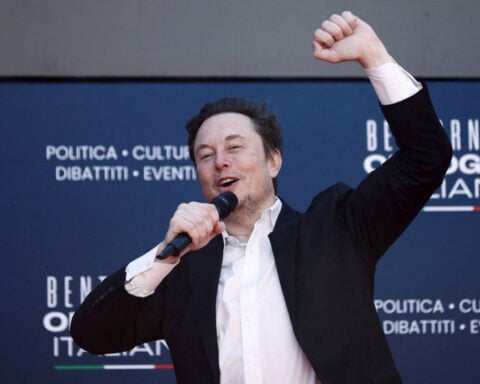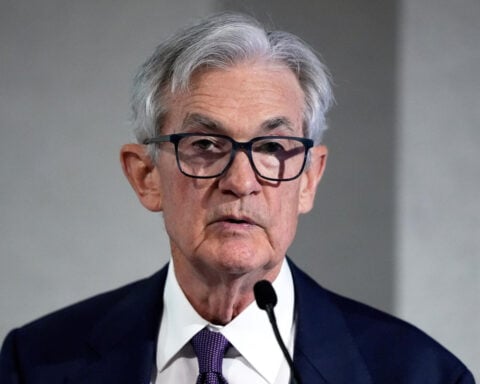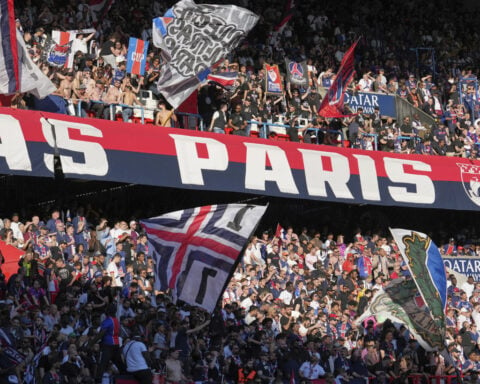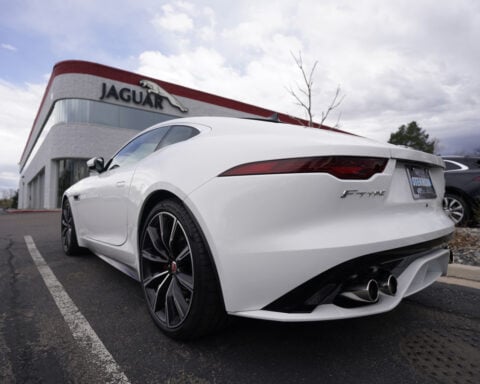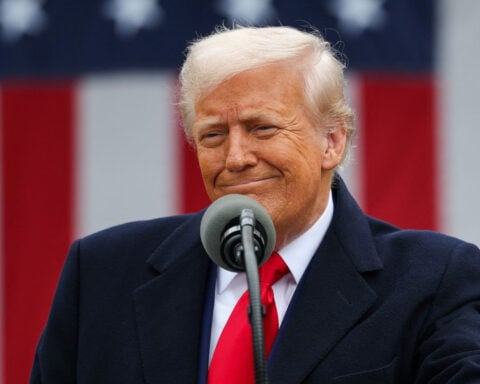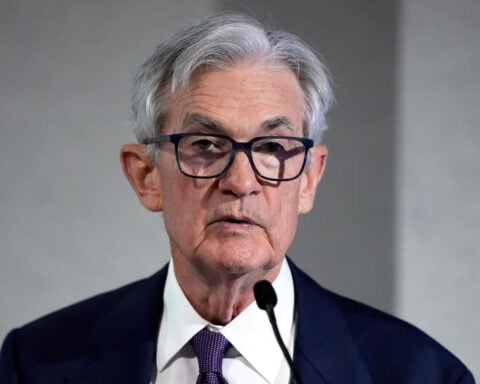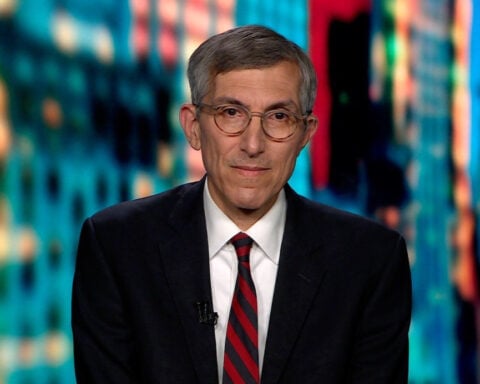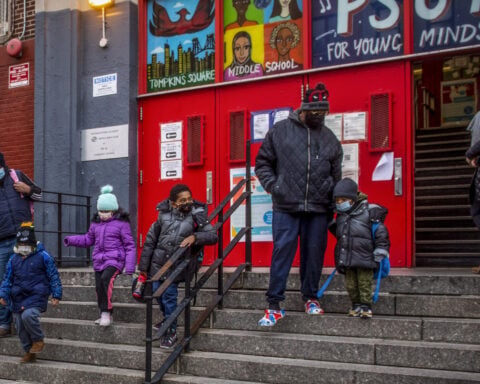Kyiv, Ukraine (CNN) — The seismic shift of the past fortnight is hard to digest.
Ukraine and its allies hope, deeply, that the plank Kyiv has been slammed in the face with, is – to paraphrase US President Donald Trump’s presidential envoy to Ukraine – just to get its attention. That the White House is merely pausing military aid and intelligence sharing, demanding about half of the country’s mineral wealth to repay an alleged debt, and expecting a public apology from its president, as a negotiating ploy. That this is just tough talk ahead of a hard deal.
But a deeper change is apparent, and one that Europe has been reluctant to accept, and is scrambling to adjust to. The Trump administration sees itself not as an ally to Ukraine and its European backers, but as an intermediary between them and Moscow, hoping to rehabilitate Russia on the world stage. Trump has said he is “seriously considering” more sanctions on Moscow. Yet he has not applied them. So far, Russia has only tasted carrots and felt no sticks.
The pressure applied so far ahead of any deal is that of the contractor on its subcontractors – America on Ukraine and Europe – squeezing their terms to create a more attractive proposition for Russia. Hopes are high that a summit in Riyadh on Tuesday, between US Secretary of State Marco Rubio and National Security Adviser Mike Waltz and Ukrainian President Volodymyr Zelensky’s team, will heal the Kyiv-Washington relationship.
Yet almost too much hinges on this meeting. Personal enmities must be put aside. A deal on rare earths and other minerals – which is, in the last draft CNN saw, essentially toothless yet a bold sign of American ambitions as to Ukraine’s natural wealth – must be inked. And, most importantly, the White House must reveal what sort of peace it has in mind.
This is the chasm that lies beneath Trump’s insistence that Zelensky “commit to peace.” Does Trump mean an indefinable vibe only he can determine? Does he mean the germs of a European peace plan, which so far involves a prisoner swap, a partial ceasefire at sea, in the air and on energy infrastructure, followed by a limited European peacekeeping force? (Russian officials have rejected much of this already). Or does he mean another version of peace that may be concocted between Moscow and Washington, without Europe or Ukraine at the table?
This last idea should be the most troubling for European security and Ukrainian sovereignty. Keith Kellogg, Trump’s envoy to Ukraine and Russia, denied that a draft deal discussed in March 2022 in Istanbul – a rushed peace bid which fell apart in the early stages of the war due to the massacres in Irpin of Ukrainian civilians – would be the framework. But he called it a “departure point, at least.”
These proposed accords demanded that Ukraine relinquish its ambitions to join NATO, an aim which is now enshrined in the country’s constitution. The draft deal also demanded major cultural changes, the least of which was Russian being made an official language.
But above all, it tried to set limits on the armed forces Ukraine could retain which would have made them significantly smaller than Russia’s vast military. Its essence was capitulation. Not in terms of submitting to peace. But in removing Ukraine’s ability to convincingly defend itself in the event that Russia, as Ukraine says it has done more than 20 times in the last decade, violates a ceasefire and attacks again.
The pressure being laid onto Ukraine would suggest Tuesday’s meeting in Riyadh – already extremely high stakes after the Oval Office catastrophe just over a week ago – is not intended to be a simple, glad-handing moment of making up. We may learn the kind of peace Trump envisions, and how much of that mirrors Moscow’s ambitions.
Europe’s future security depends on how much “art of the deal” there is in this deal. Trump’s accustomed business world is one where he would seek to make a purchase or a contract attractive to the other side. Perhaps he might fire the head of the subcontractor if the other side didn’t like them (hence the loose talk of Zelensky’s fitness for office). He might screw down on their terms to improve margins (pausing military aid). He might flatter his prospective client (his reluctance to speak ill of Putin).
But the deal would ultimately involve the purchase of bricks and mortar, or their construction: a simple and predictable future course of actions or change in ownership of property, protected and cosseted by lawyers and courts – by the rule of law. If the other side broke the deal, Trump could sue. The precedents and courses of action were well-defined, and the rule of law on his side in ensuring the terms of the deal were kept.
Russia is not a massive fan of the rule of law. It negotiates normally to buy time to pursue its military goals. It seized the eastern Ukrainian town of Debaltseve literally during the first days of a ceasefire in 2015, negotiated following its limited invasion of Ukraine the previous year. Putin was raised in the KGB, lives on a diet of “maskirovka” (masking) and openly denied it was his troops who invaded Crimea in 2014, before laughingly accepting they were actually his a few years later. Were he a business, his credit rating would probably be distressed.
But Trump’s belief, his hunch, that Putin can be trusted and wants peace, is now guiding US policy, and rewriting America’s role in the largest war in Europe since the 1940s.
Signs of the damage this psychological blow has inflicted are already bubbling to the surface. Ukrainian forces are in peril in the Kursk region, and may lose this sliver of Russian land that was their only territorial card at the negotiating table. If they fall, the North Korean and Russian troops engaged there can then turn their attention to the rest of the eastern frontline where Moscow has made slow progress for months.
Ballistic missile and drone attacks have caused a horrific loss of civilian life this weekend, even after Trump threatened sanctions for Moscow “pounding” Ukraine, and may worsen as the pause in military aid reduces the US-supplied Patriots that Ukraine has depended on for air defense for its cities.
So far, the collapse in American support for Ukraine has mostly been confined to wild theater in foreign capitals. This week, we may learn details of the unclear peace Trump seeks. And then the grim toll of these remote, sanitary hotel meetings in suits will likely turn into dust and loss across Ukraine.
The-CNN-Wire
™ & © 2025 Cable News Network, Inc., a Warner Bros. Discovery Company. All rights reserved.

 Trump has begun another trade war. Here's a timeline of how we got here
Trump has begun another trade war. Here's a timeline of how we got here
 Canada's leader laments lost friendship with US in town that sheltered stranded Americans after 9/11
Canada's leader laments lost friendship with US in town that sheltered stranded Americans after 9/11
 Chinese EV giant BYD's fourth-quarter profit leaps 73%
Chinese EV giant BYD's fourth-quarter profit leaps 73%
 You're an American in another land? Prepare to talk about the why and how of Trump 2.0
You're an American in another land? Prepare to talk about the why and how of Trump 2.0
 Chalk talk: Star power, top teams and No. 5 seeds headline the women's March Madness Sweet 16
Chalk talk: Star power, top teams and No. 5 seeds headline the women's March Madness Sweet 16
 Purdue returns to Sweet 16 with 76-62 win over McNeese in March Madness
Purdue returns to Sweet 16 with 76-62 win over McNeese in March Madness
